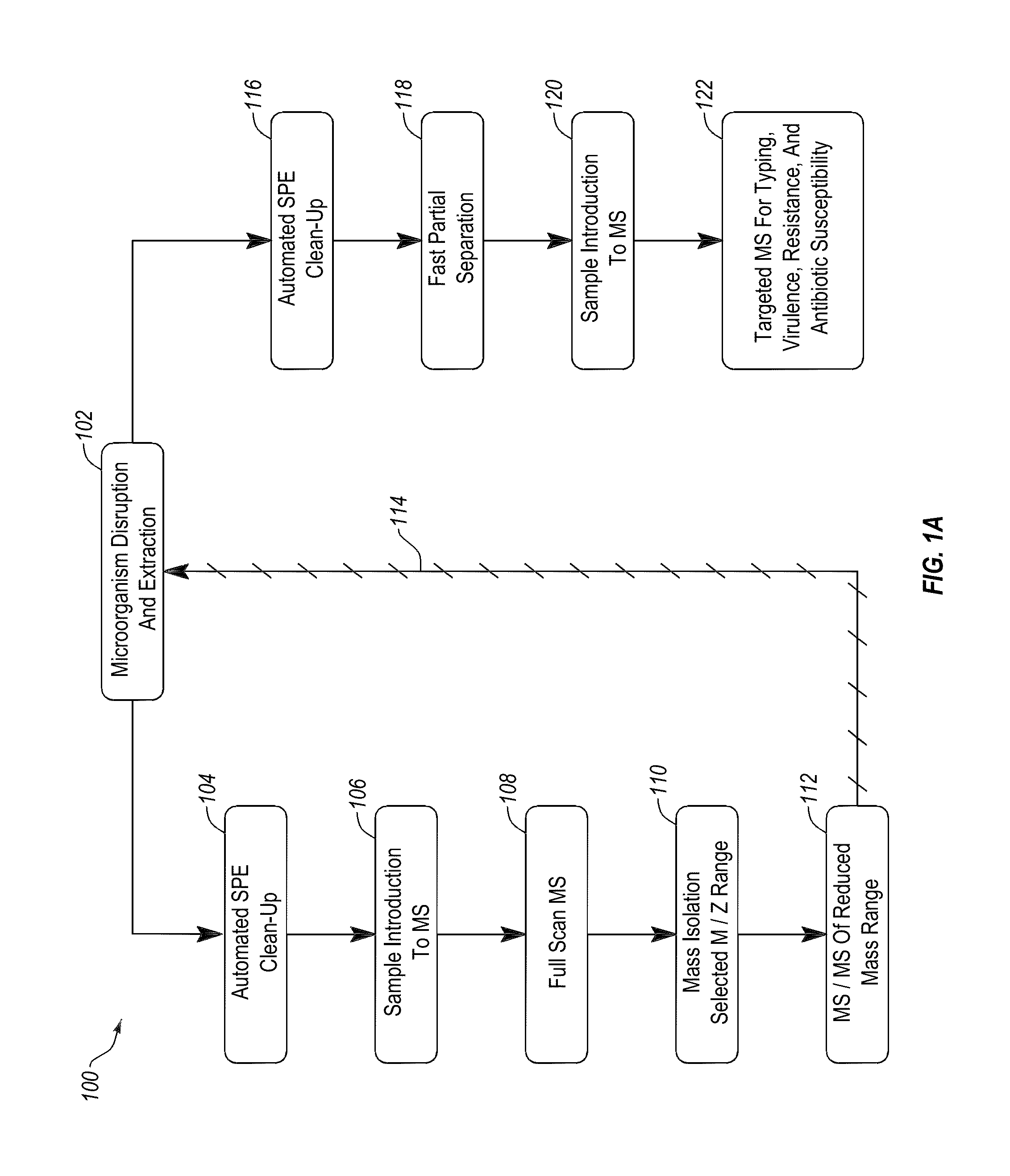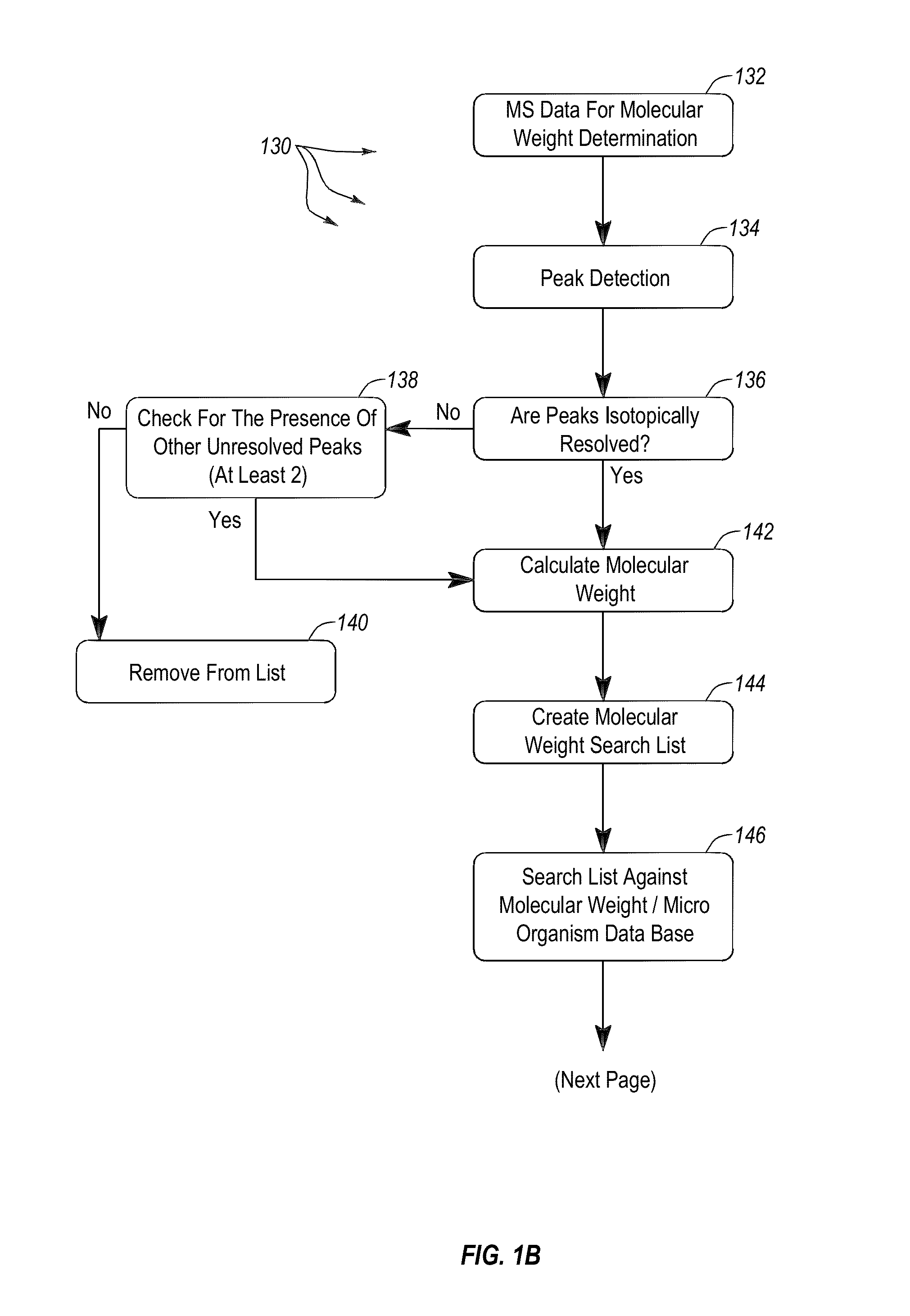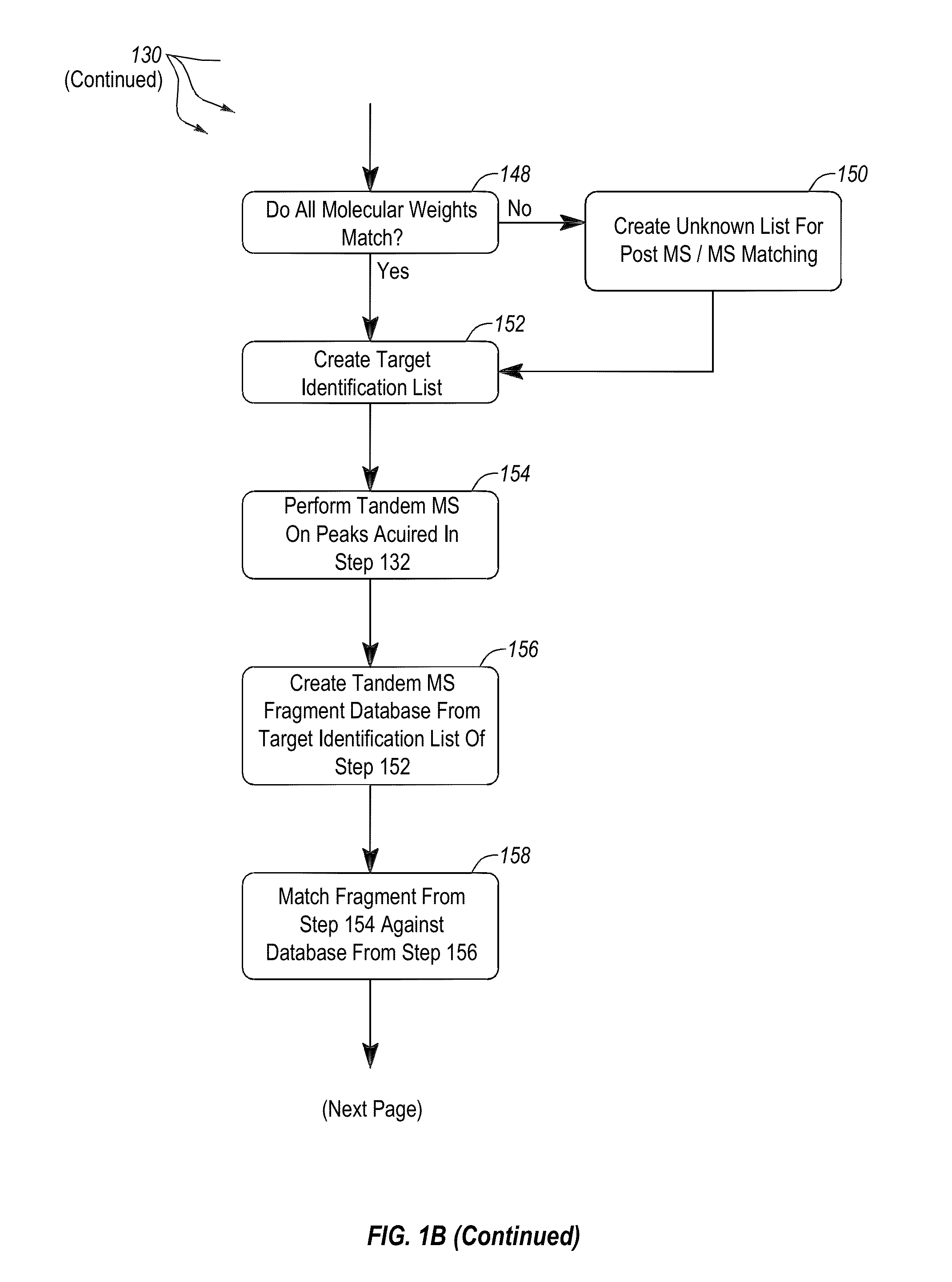Apparatus and methods for microbiological analysis
a microorganism and apparatus technology, applied in the field of apparatus and methods for microorganism analysis, can solve the problems of further limited differentiation of closely related microorganisms by maldi-tof, and limiting the application range of maldi-tof for microbial analysis, so as to facilitate epidemiological tracking of an outbreak
- Summary
- Abstract
- Description
- Claims
- Application Information
AI Technical Summary
Benefits of technology
Problems solved by technology
Method used
Image
Examples
Embodiment Construction
[0033]The present invention, in one embodiment, provides a method for rapid extraction and analysis of a soluble protein extract from cells of at least one microorganism, including Gram positive bacteria, Gram negative bacteria, yeasts, mycobacteria, mycoplasma, microscopic fungi, and viruses. Analysis of proteins is performed via mass spectrometry to identify the microorganisms present in the sample and then, optionally, a targeted mass spectrometric analysis may be conducted to characterize (qualitatively and quantitatively) proteins associated with antibiotic resistance and / or sensitivity markers, virulence factors, typing of strains, or other characteristics. In another embodiment, kits comprising two or more of: reagents, consumables, devices, calibrators, controls, and standards for performing the method are provided.
[0034]FIG. 1A provides an overview of the general work flow of the method 100 for rapid extraction and analysis of a soluble protein extract from cells of at leas...
PUM
| Property | Measurement | Unit |
|---|---|---|
| volumes | aaaaa | aaaaa |
| length | aaaaa | aaaaa |
| length | aaaaa | aaaaa |
Abstract
Description
Claims
Application Information
 Login to View More
Login to View More - R&D
- Intellectual Property
- Life Sciences
- Materials
- Tech Scout
- Unparalleled Data Quality
- Higher Quality Content
- 60% Fewer Hallucinations
Browse by: Latest US Patents, China's latest patents, Technical Efficacy Thesaurus, Application Domain, Technology Topic, Popular Technical Reports.
© 2025 PatSnap. All rights reserved.Legal|Privacy policy|Modern Slavery Act Transparency Statement|Sitemap|About US| Contact US: help@patsnap.com



